The Seaweed Market
The Opportunities are Boundless
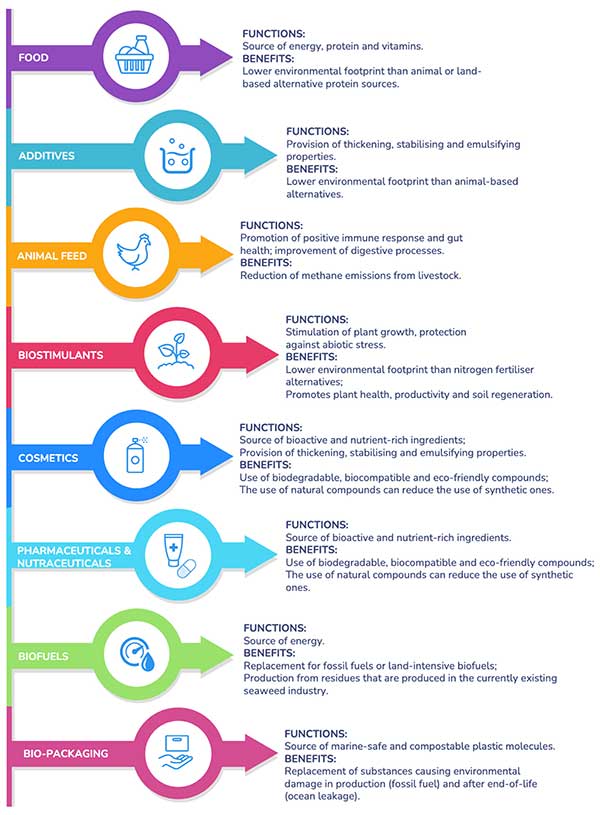
Read the UN Report
Download the 2024 UN Report An Ocean of Opportunities describing the potential of seaweed.
A Projected $37.84 Billion Market by 2031
The value of the seaweed market is projected to reach almost US$37.84 billion by 2031 according to research by Meticulous Research in 2024
This staggering growth is a direct result of the world’s quest for sustainability and environmentally friendly products. Many countries are introducing punitive measures for the use of non-biodegradable products, including bans on single use plastics.
Major brands such as Cargill, Kerry Group, Danone, L’Oreal, Nestlé, Unilever and DowDuppont have recognised the potential and are already heavily invested in seaweed based components.
There continues to be research conducted on the health giving properties of seaweed, and in particular the potential for red seaweed to act as a treatment for cancer.
As long ago as the 1960’s DuPont has been a pioneer in making seaweed harvesting as efficient and sustainable as possible.
Not just environmentally, but socio-economically, too. True sustainability is only possible when everyone in the supply chain is happy: from the farmers harvesting the seaweed, to the companies that make it into a product.
Around the world, every seaweed supply is unique. Recognising this DowDupont adapts how it’s harvested, and how often under the principle of biology-based management. This, combined with making sure they work inclusively throughout the value chain, is how they endeavour to make their approach sustainable.
A Key Resource
Cargill launched its Red Seaweed Promise (TM) in 2019 with a more recent update in 2021, reinforcing its commitment to secure a long-term sustainable red seaweed supply. Many of the larger corporates are engaged on an acquisition strategy in the seaweed sector to enhance their product offerings.
Cargill states in its paper that seaweeds are among the most productive plants on the planet, capturing carbon more efficiently than tropical forests, reversing ocean acidification and eutrophication, and helping to build up depleted fish stocks.
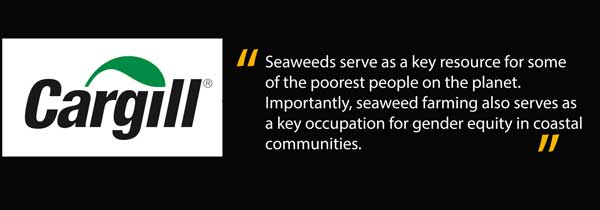
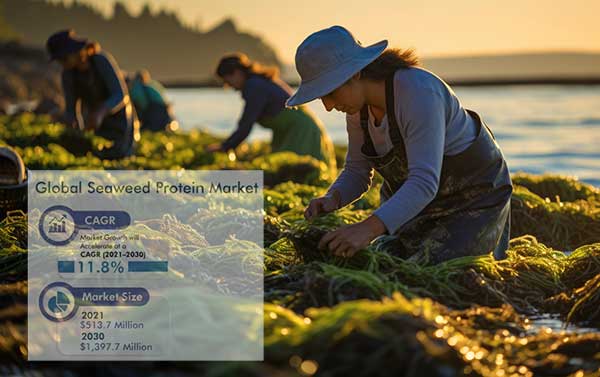
The Growth of Cultivation
Environmental concerns have increasingly led to the development of solutions that mitigate the effects of pollution and emissions on the environment, and consumer preferences have become a driver for more sustainable products. Macro algae cultivation is just one area that has witnessed extraordinary growth. The algae are sustainable, fast growing, nutrient rich and absorb carbon dioxide and release oxygen.
The rising demand for macro algae production is partly driven by the growth in veganism and plant based products in the animal welfare sector. A press release from Proveg International claims the market for plant-based meat alternatives will double within the next five years. According to figures provided by Meticulous Research, the market was valued at 17.68 billion US$ in 2023 and is predicted to grow at an annual rate of around 10.30%, reaching 37.84 billion US$ by 2031. The global meat market, by comparison, is only predicted to grow by 3% per year, according to Kearney.
Seaweed Exporting Countries
Despite the global prevalence of seaweed, seaweed exports are dominated by the Republic of Korea and Indonesia.
Korea has consumed and cultivated seaweed for centuries. It is deeply embedded in their cuisine (e.g., gim or miyeok) and economy, which has led to advanced, efficient aquaculture techniques.
Indonesia, while newer to large-scale seaweed farming, has rapidly scaled up production since the 1990s, especially in poor coastal areas where seaweed farming became an alternative livelihood to fishing.
Potential: this means there is huge potential for expansion from countries like India, Tanzania and Kenya with long coastlines and ideal growing conditions. The African continent is only just beginning to explore its potential for seaweed development. The African Union Development Agency has started working on seaweed and the blue economy and India has launched its ‘Seaweed Mission’ to kickstart cultivation on a grand scale.
China is the number one producer of seaweed, producing over 21.4 million tons in 2023 and is ripe to seize export opportunities.
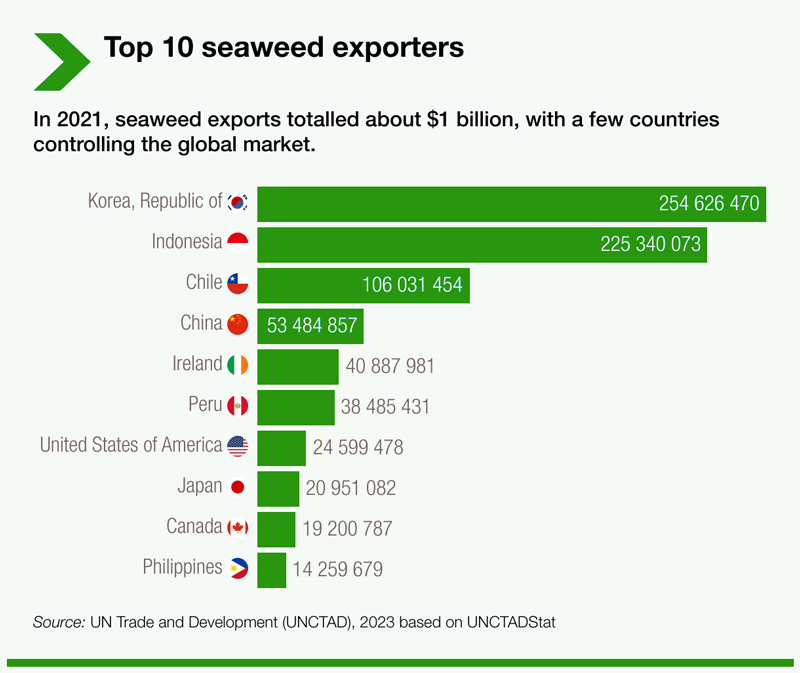
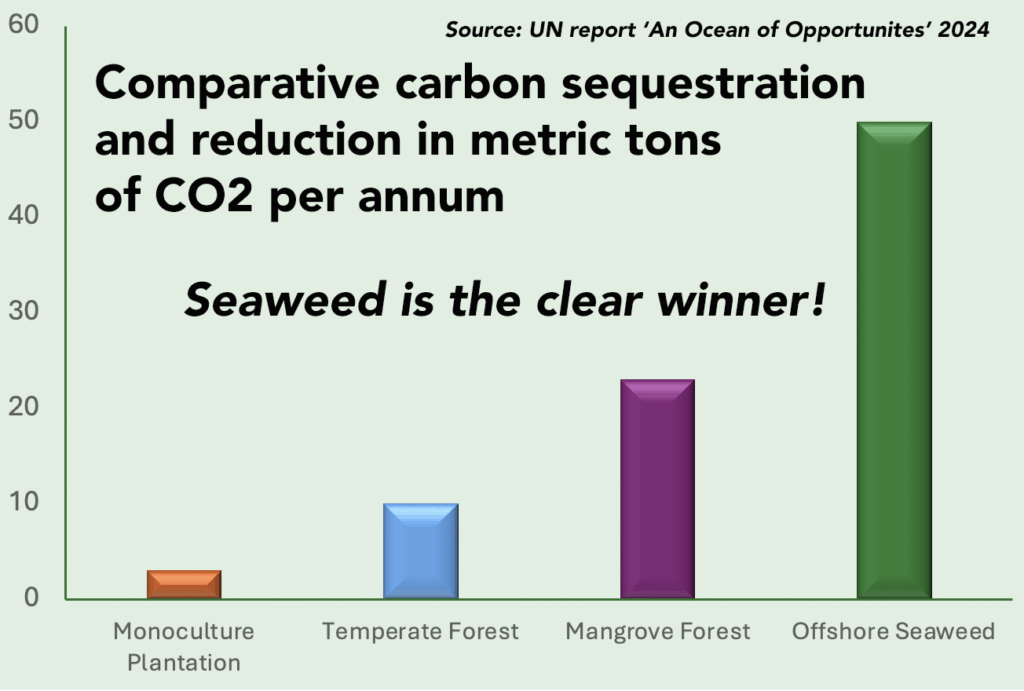
Carbon Reduction
Seaweed ecosystems draw down the largest carbon flux of any vegetated coastal habitat and may have the capacity to sequester more carbon dioxide (CO2) than any other plant ecosystem.
Estimates suggests macroalgae could sequester about 173 million metric tons of CO2 per year, of which about 90 per cent of occurs through transfer of CO2 to the deep sea, and the rest through its burial in coastal sediments.
Offshore seaweed has an absorption average rate of at least 50 metric tons of CO2 per hectare, much higher than mangroves and terrestrial forests.
While seaweed has not yet been incorporated or widely accepted blue carbon credit programmes, many regions and organizations are working on providing means to compensate people who cultivate and restore seaweed for the goal of sequestering and absorbing carbon.